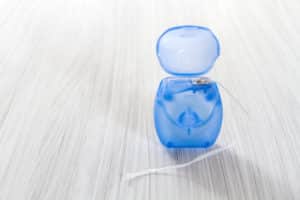 If you have spent time learning anything about flossing, chances are good you’ve been polishing your technique to make sure you’re doing an excellent job. You may have even spent some time figuring out which floss you like best, whether that means choosing a new flavor or texture. However, there are some interesting details about this part of your dental hygiene routine that may have fallen through the cracks. Consider some helpful advice, so you feel more compelled to remain dedicated to your oral health.
If you have spent time learning anything about flossing, chances are good you’ve been polishing your technique to make sure you’re doing an excellent job. You may have even spent some time figuring out which floss you like best, whether that means choosing a new flavor or texture. However, there are some interesting details about this part of your dental hygiene routine that may have fallen through the cracks. Consider some helpful advice, so you feel more compelled to remain dedicated to your oral health.
You Have To Do It Every Day
If you don’t floss every day – even if you skip one session – the consequences can become serious. This is because plaque, the sticky substance full of bacteria that coats your teeth, can harden within as little as one day. It’s true, after only 24 to 48 hours, the substance will become something that is likened to cement (known as tartar). The bad news is that your floss will not be able to remove the tartar, just the plaque, which means your efforts will be getting your smile somewhat clean instead of very clean. The moral of the story is: Floss daily.
It Does More Than Prevent Gingivitis
Flossing to protect your oral health from gum disease is only one part of the story. Flossing will also help protect you from developing tooth decay (particularly between your teeth, where cavities may form), help your smile look nice and clean, and will even help prevent halitosis.
You Have An Alternative
If you dislike floss for whatever reason, you may wish to consider using a water flosser instead. Rather than using material that you slide between your teeth, you will be using a handheld wand that administers a stream of water. That stream can clean between teeth and beneath your gumline, too, for an effective option to protect your oral health.


